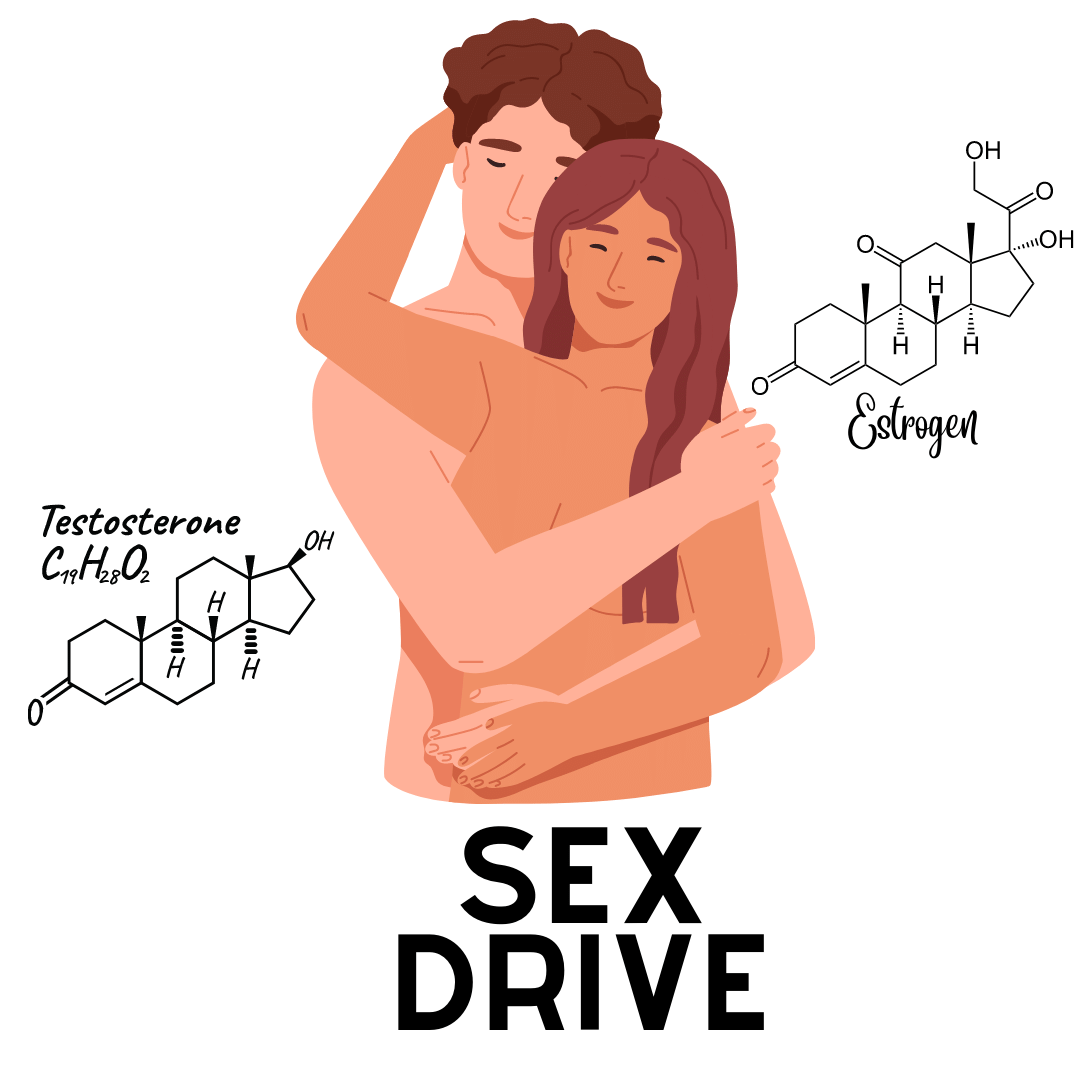An endocrinologist is a medical doctor who specializes in the diagnosis and treatment of conditions that affect the endocrine system. The endocrine system is a collection of glands that produce hormones. Hormones are chemicals that travel through the bloodstream and control the function of various organs in the body. The endocrine system includes the hormones and glands that produce them, such as the pituitary gland, thyroid gland, and adrenal glands.
Endocrinologists treat conditions such as diabetes, thyroid disorders, growth disorders, and sexual dysfunction. They also play a role in fertility and pregnancy care. Many endocrinologists are involved in research to improve our understanding of how the endocrine system works and to develop new treatments for endocrine disorders.
What are the endocrine glands?
The endocrine glands are a vital part of the endocrine system, which is responsible for producing and regulating hormones in the body. These hormones play a crucial role in many of the body’s essential functions, such as growth and development, metabolism, reproduction, and mood. imbalances in hormone levels can often lead to health problems. The eight major endocrine glands are the pituitary gland, thyroid gland, parathyroid gland, adrenal gland, pancreas, ovaries (in females), and testes (in males). Each of these glands produces one or more specific hormones that help to keep the body functioning properly.
The pituitary gland is often referred to as the “master” gland because it regulates the activity of many of the other endocrine glands. It produces six main hormones: growth hormone, which stimulates growth and cell reproduction; prolactin, which helps with milk production; adrenocorticotropic hormone (ACTH), which regulates the release of stress hormones from the adrenal gland; thyroid-stimulating hormone (TSH), which helps to control the thyroid gland; follicle-stimulating hormone (FSH), which is involved in female ovulation and sperm production in males; and luteinizing hormone (LH), which also regulates ovulation in females.
The thyroid gland is located in the neck and produces two main hormones: thyroxine (T4) and triiodothyronine (T3). These hormones help to regulate the body’s metabolism, which is the process by which the body converts food into energy. Thyroid hormone levels that are too high or too low can cause a variety of problems, such as weight gain or loss, fatigue, anxiety, depression, and difficulty concentrating.
The parathyroid glands are four small glands located in the neck near the thyroid gland. They produce parathyroid hormone (PTH), which helps to regulate calcium levels in the blood. When calcium levels drop, PTH is released from the parathyroid glands to signal the bones to release calcium into the bloodstream. PTH also works to increase absorption of calcium from the gut and to reduce urinary calcium losses. Too much or too little PTH can lead to problems with calcium metabolism and bone health.
The adrenal glands are located on top of the kidneys and produce several important hormones, including adrenaline and cortisol. Adrenaline is released in response to stress and helps to increase heart rate, blood pressure, and glucose levels in the blood. Cortisol is a “stress hormone” that helps the body to deal with physical or emotional stress. It also plays a role in regulating blood sugar levels, inflammation, and metabolism. Too much or too little cortisol can cause problems such as weight gain or loss, fatigue, anxiety, and difficulty concentrating.
The pancreas is an organ located behind the stomach that produces insulin and glucagon. These two hormones work together to regulate blood sugar levels. Insulin helps to lower blood sugar levels by promoting the uptake of glucose into cells, while glucagon helps to raise blood sugar levels by stimulating the release of glucose from storage in the liver. imbalances in insulin and glucagon levels can lead to problems such as diabetes.
The ovaries are a pair of female reproductive organs that produce eggs and the hormones estrogen and progesterone. Estrogen plays a role in regulating the menstrual cycle and preparing the body for pregnancy, while progesterone helps to maintain pregnancy. imbalances in hormone levels can often lead to problems with fertility, menstruation, and menopause.
The testes are a pair of male reproductive organs that produce sperm and the hormone testosterone. Testosterone is responsible for the development of male sexual characteristics, such as facial hair and a deep voice, and also plays a role in sperm production. imbalances in hormone levels can often lead to problems with fertility, sexual function, and muscle mass.
Diabetes
Diabetes is a condition that occurs when the body either does not produce enough insulin (a hormone that regulates blood sugar levels) or cannot properly use the insulin it does produce. As a result, blood sugar levels become elevated, leading to a variety of health problems. Endocrinologists work with their patients to develop treatment plans that help keep blood sugar levels under control.
Insulin pumps are devices that deliver insulin to the body through a small tube, or catheter, that is inserted just under the skin. Insulin pumps are most often used by people with type 1 diabetes, but some people with type 2 diabetes may also use insulin pumps.
Endocrinologists can provide education and support to people who use insulin pumps to help them manage their diabetes effectively. In addition, endocrinologists can prescribe insulin pump supplies and troubleshoot any problems with the pump.
This may involve lifestyle changes, such as diet and exercise and medication. By working closely with an endocrinologist, patients with diabetes can minimize their risk of developing severe complications.
Thyroid disorders
The thyroid is a gland that produces hormones that regulate metabolism, and thyroid disorders can result in various symptoms, including fatigue, weight gain, and hair loss. Endocrinologists use various methods to diagnose thyroid disorders, including blood tests and imaging studies.
Once a diagnosis is made, endocrinologists work with their patients to develop an individualized treatment plan. Treatment options for thyroid disorders include medications, surgery, and lifestyle changes. Endocrinologists work with their patients to find the best treatment option for each individual.
Growth disorders
Endocrinologists also treat children and adults with growth disorders. Growth disorders can be caused by various conditions, including hormonal imbalances, genetic disorders, and certain medications. Endocrinologists often treat growth disorders, resulting in either too much or too little growth. One of the most common growth disorders is gigantism, which is caused by an overproduction of growth hormones.
This can lead to excessive height and weight gain. Endocrinologists also treat dwarfism, which is characterized by unusually short stature. In many cases, this condition is caused by a growth hormone deficiency. Treatment for growth disorders typically involves medication that helps to regulate hormone levels. In some cases, surgery may also be necessary. Endocrinologists work with patients of all ages, from infants to adults. They strive to improve their patients’ quality of life and help them reach their full potential.

Sexual dysfunction
They often treat patients with sexual dysfunction, as hormonal imbalances can lead to problems with sexual desire, arousal, and orgasm. In most cases, endocrinologists will first attempt to correct any underlying hormonal problems.
If that is not possible or if the patient does not respond to treatment, they may prescribe medications to help improve sexual function. These can include phosphodiesterase inhibitors, testosterone replacement therapy, and local anesthetics.
In some cases, surgery may also be an option. Endocrinologists are highly trained medical professionals who can provide effective treatment for sexual dysfunction.
Fertility and pregnancy care
As any parent knows, the journey to parenthood can be filled with ups and downs. For couples struggling to conceive, the process can be incredibly daunting. However, there is hope. Endocrinologists are medical doctors who specialize in treating hormone-related conditions, including infertility.
In many cases, endocrinologists can help couples conceive by correcting imbalances in hormone levels. In addition, endocrinologists often provide pregnancy care for women with hormone-related conditions, such as diabetes or thyroid disorders. As a result, endocrinologists play a vital role in helping couples achieve their dreams of starting a family.
Research
Many endocrinologists are involved in research to improve our understanding of how the endocrine system works and develop new treatments for endocrine disorders. Endocrinologists conduct research on various topics, including diabetes, thyroid disorders, growth disorders, sexual dysfunction, fertility, and pregnancy.
In addition, endocrinologists often collaborate with other healthcare providers, such as primary care physicians and specialists, to ensure that patients receive the best possible care.
Osteoporosis
Endocrinologists are medical doctors who treat patients with hormone-related conditions. One common condition that endocrinologists treat is osteoporosis. Osteoporosis is a condition in which the bones become thin and weak. This can lead to fractures, joint pain, and loss of height.
Endocrinologists diagnose osteoporosis by conducting a bone density test, which measures the amount of minerals in the bones. In order to treat osteoporosis, endocrinologists may recommend lifestyle changes such as eating a healthy diet and getting regular exercise.
They may also prescribe medication to help strengthen the bones. By working with an endocrinologist, patients with osteoporosis can take steps to improve their bone health and reduce their risk of fractures.
Low testosterone
Testosterone is a hormone that plays a vital role in developing male sexual characteristics. Low testosterone levels can cause several problems, including reduced muscle mass, decreased bone density, and low sex drive. In some cases, low testosterone can also lead to depression and fatigue. Endocrinologists use various methods to treat low testosterone, including testosterone replacement therapy, lifestyle changes, and medication.
Testosterone replacement therapy involves receiving regular injections of testosterone into the muscles. Lifestyle changes such as exercising more and eating a healthy diet can also help to increase testosterone levels.
Finally, medications such as clomiphene citrate can be used to stimulate the production of testosterone. By working with an endocrinologist, men with low testosterone can receive the treatment they need to improve their overall health and well-being.
Hypercalcemia
Hypercalcemia is a condition characterized by elevated levels of calcium in the blood. While calcium is essential for many bodily functions, including bone health and muscle contraction, too much calcium can lead to serious health problems.
Endocrinologists are doctors who specialize in the treatment of hormonal imbalances, and they are often called upon to treat cases of hypercalcemia. In most cases, hypercalcemia is caused by an overactive parathyroid gland, which regulates calcium levels in the body.
Endocrinologists will first seek to identify and correct the condition’s underlying cause, which may involve surgically removing the overactive gland. If surgery is not an option or if the gland cannot be removed completely, endocrinologists may prescribe medication to control calcium levels and relieve symptoms. With proper treatment, patients with hypercalcemia can often lead long and healthy lives.

Metabolic syndrome
Metabolic syndrome is a serious condition that occurs when a person has several risk factors for heart disease and diabetes. These risk factors include high blood pressure, high blood sugar, unhealthy cholesterol levels, and excess body fat around the waist.
If left untreated, metabolic syndrome can lead to a heart attack or stroke. Endocrinologists are experts in treating this condition. They may recommend lifestyle changes, such as exercising more and eating a healthy diet. They may also prescribe medication to lower blood pressure or cholesterol.
In some cases, surgery may be needed to remove excess abdominal fat. By receiving treatment from an endocrinologist, people with metabolic syndrome can greatly reduce their risk of developing serious health problems.
Non-alcoholic fatty liver disease
Non-alcoholic fatty liver disease (NAFLD) is a condition that occurs when there is too much fat stored in the liver. While NAFLD can be caused by a number of things, including obesity and diabetes, the exact cause is not always known.
Endocrinologists treat NAFLD by working to manage the underlying conditions that may be contributing to the disease. This may involve making lifestyle changes, such as losing weight or changing your diet. In some cases, medication may also be necessary to control blood sugar levels or reduce inflammation. By working with an endocrinologist, you can develop a treatment plan that is tailored to your specific needs and goals.
What symptoms may be due to an endocrine disorder
Endocrine disorders can cause a variety of symptoms, depending on the specific disorder and the organs or glands involved. For example, someone with an overactive thyroid may experience sudden weight loss, increased appetite, and anxiety.
In contrast, someone with an underactive thyroid may gain weight, feel fatigued, and have dry skin. Disorders of the adrenal gland can also cause a host of symptoms, including high blood pressure, weakness, and changes in mood or mental status. Similarly, disruptions to the hormones produced by the ovaries can lead to irregular periods, infertility, and hot flashes. Because endocrine disorders can affect many different body systems, it is important to see a doctor if you are experiencing any unexplained changes in your health. An accurate diagnosis and early treatment are essential for managing these conditions.
What to expect at your first endocrinology appointment
Assuming you have a referral from your primary care physician, your first endocrinology appointment will likely be for a consultation. During this meeting, your endocrinologist will ask about your medical history and any symptoms you may be experiencing. He or she will also perform a physical examination and may order some blood tests. Based on this information, the endocrinologist will determine whether you have a hormone disorder and, if so, develop a treatment plan.
Follow-up appointments will be needed to monitor your condition and adjust your medication dosage as necessary.
Disclaimer
The opinions expressed here represent the views of a practicing hormone specialist (endocrinologist) and must not substitute the advice of your health care provider. This blog post is written for a non-medical audience interested in learning more about hormonal disorders. The author has no commercial conflicts of interest to declare. Also, read our privacy policy.
Kindly Let Us Know If This Was helpful? Thank You!


